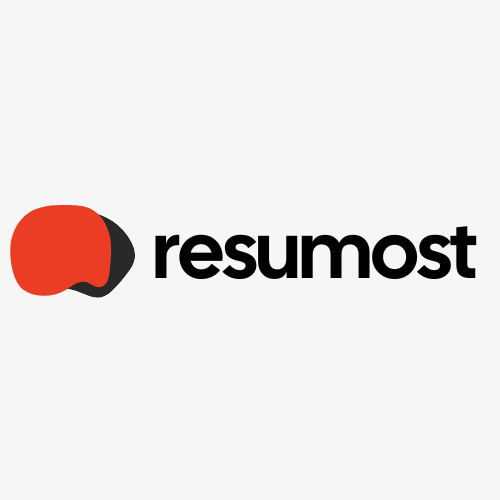Your First Job Interview: The Ultimate Game Plan for Success
Feeling the jitters about your first job interview? This comprehensive guide breaks down everything you need to know, from pre-interview research to post-interview follow-up, to help you turn nerves into a job offer.
Before the Big Day: Your Preparation Checklist
Success in an interview starts long before you shake the hiring manager’s hand. The work you put in beforehand is what builds the foundation for a great conversation.
Become a Company Insider
Anyone can read a company's homepage. To stand out, you need to dig a little deeper. Spend some time understanding:
- Their Mission and Values: What does the company stand for? How do your own values align with theirs? You can usually find this on their "About Us" page.
- Recent News or Projects: Have they launched a new product, won an award, or been mentioned in the news? Mentioning this shows you're paying attention. A quick Google News search works wonders.
- Their Culture: Skim their social media pages (like LinkedIn or even Instagram) to get a feel for the work environment. Is it formal and corporate, or more casual and creative?
Know Your Story (and Your Resume)
Your resume got you in the door, which is a huge win! Now, you need to bring it to life. The interviewer will use it as a guide for their questions, so be prepared to talk about everything on it.
Think of your resume as the trailer; the interview is the main event. Every point on that document is a potential conversation starter. If you're looking to make sure that initial document is as strong as it can be, crafting a standout application with a tool like resumost.com is the perfect first step.
For the interview, practice connecting your experiences to the job description. If they need a "detail-oriented team player," be ready with a specific example of a time you successfully collaborated on a detailed project.
Rehearse, Don't Memorize
There’s a fine line between being prepared and sounding like a robot. You want to practice your answers, not read them from a script in your head.
A great framework for answering behavioral questions (like "Tell me about a time you faced a challenge...") is the STAR method:
- Situation: Briefly describe the context. (e.g., "In my previous role as a retail assistant...")
- Task: What was your specific responsibility or goal? (e.g., "...we were tasked with reorganizing the entire stockroom.")
- Action: What specific steps did you take? (e.g., "I developed a new labeling system and created a digital map...")
- Result: What was the positive outcome? (e.g., "...which reduced the time it took to find items by 30%.")
Prepare Your Own Questions
At the end of the interview, you'll almost always be asked, "Do you have any questions for us?" Your answer should always be "Yes." This shows you're engaged, thoughtful, and genuinely interested in the role.
Prepare 3-4 smart questions, such as:
- "What does a typical day look like in this role?"
- "How does your team measure success?"
- "What are the biggest challenges someone in this position might face?"
- "What do you enjoy most about working here?"
On the Day: Making a Great Impression
You’ve done the prep. Now it’s showtime.
Dress the Part
When in doubt, it’s always better to be slightly overdressed than underdressed. If you're unsure of the dress code, aim for business casual (think slacks or a skirt with a button-down shirt or blouse). The goal is to look polished, professional, and comfortable.
Master the Logistics
Whether your interview is in-person or virtual, logistics matter.
- For In-Person Interviews: Plan your route and aim to arrive in the area about 30 minutes early, but only enter the building 10-15 minutes before your scheduled time. This gives you a buffer for traffic without making the receptionist babysit you.
- For Virtual Interviews: Test your technology! Check your camera, microphone, and internet connection an hour beforehand. Make sure your background is clean and professional, and that you won't be interrupted.
Connect with Confidence
An interview is a two-way conversation, not an interrogation.
- Offer a firm handshake (if in person) and make eye contact.
- Smile and be personable.
- Listen carefully to the question before answering. It’s okay to take a brief pause to collect your thoughts.
- Sit up straight and use positive body language. Avoid fidgeting or crossing your arms.
After the Handshake: The Crucial Follow-Up
Your work isn't done quite yet. Sending a thank-you note is a simple but powerful gesture that many candidates forget.
Within 24 hours of your interview, send a concise and professional email to the person (or people) who interviewed you.
- Thank them for their time.
- Briefly reiterate your interest in the role.
- Mention something specific you discussed that you found interesting. This shows you were listening.
---
Remember, an interview is just a conversation to see if you and the company are a good fit for each other. You have unique skills and a valuable perspective to offer. You've done the prep, you know your value, and you're ready. Now go and show them what you’ve got.
Good luck
© 2026 Resumost.
We love that you're reading our work! Please note that this content is our own. If you'd like to share or re-post it, please reach out to us for permission first. Unauthorized scraping of this site is not permitted.

The Resumost Team
Resumost instantly creates a compelling, professional letter based on your newly tailored resume and the specific job you're targeting.
